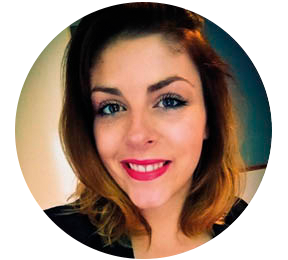Type 2 Diabetes & Life Insurance
Request a Callback
By clicking on submit I / We give consent for you to call me / us on the number provided to discuss my / our financial requirements.
Caring - Understanding - Reliable - Advice
Home » Health Conditions » Diabetes & Life Insurance » Type 2 Diabetes & Life Insurance
Type 2 Diabetes & Life Insurance
 We understand that being told that you have diabetes type 2, can be a worrying situation. Whilst we cannot make the diabetes go away, we can take away stress that you may have when applying for insurance.
We understand that being told that you have diabetes type 2, can be a worrying situation. Whilst we cannot make the diabetes go away, we can take away stress that you may have when applying for insurance.
Things we need to know:
- When were you diagnosed with type 2 diabetes?
- What is your latest HbA1C reading?
- What is your blood pressure reading?
- What is your cholesterol reading?
- What is your height and weight?
- Do you have any complications e.g. diabetic neuropathy?
Individuals with type 2 diabetes should have no concerns about applying for Life Insurance. Some insurance providers will be able to underwrite your application at the time of submission if you are able to provide your latest HbA1c readings (taken within the prior 6 months) and have no other major health complications.
If you are unable to provide these readings or do have other medical conditions your application is likely to be referred to underwriting and the insurer will want to contact your GP for additional information. This is a standard process for diabetics wanting Life Insurance and is often an advantage, as you can then be confident that the insurance provider has the latest account of your health before determining the policy available to you.
It is possible for a small number of type 2 diabetics to be accepted at normal terms. This would usually be when you HbA1c readings are less than 7, you have been diagnosed for less than 5 years, are over age 50 and have otherwise excellent health. For most people however a premium increase is likely.
Type 2 Diabetes & Critical Illness Cover
Type 2 diabetics can have critical illness cover if they meet specific criteria set by the insurer. Critical Illness Cover applications for those with diabetes, will require the insurance provider to speak with your GP and will follow the same application process as that of Life Insurance. There are currently a few providers who can consider offering Critical Illness Cover for diabetics, there will however either be a number of exclusions on the policy or the cost of the cover will be increased.
To be eligible you must fall into the following categories:
- Be a type 2 diabetic and have been for less than 15 years.
- Be a non-smoker.
- Have HbA1c readings that are typically less than 8%.
- Have no other associated conditions such as eye, kidney, heart or circulation problems.
- Have had a normal urinalysis test.
Whilst Critical Illness Cover for diabetics is only available for a small number of diabetics on the standard marker, there are specialist policies available that could be worth considering. Specialist critical illness cover that is available for people with diabetes will come with an exclusion for diabetic related claims, and we would recommend that you speak with someone who can fully explain the policy to you, before you purchase it.
Type 2 Diabetes & Income Protection
Income Protection for type 2 diabetics is available with a number of insurance companies. There are strict criteria for successful Income Protection applications for type 2 diabetics and you should be prepared that the policy premiums will be higher than those available to non-diabetics (or you could choose to have your condition excluded). To be eligible for Income Protection when you have diabetes you would have have no other serious conditions and the diabetes should be well controlled with no associated conditions.
Alternatively you could enquire about Accident, Sickness and Unemployment Cover which will not ask about your diabetes at the point of application, but certainly will exclude it from the policy claims set. Accident, Sickness and Unemployment cover pays you a monthly income for between 12-24 months if you are unable to work due to ill health or redundancy.
Type 2 Diabetes & Travel Insurance
Are you planning on going abroad? It is important that you know what your travel insurance covers you for, when it comes to your diabetes. Take a look at our travel insurance page for more details here.
Video Transcript
Hi. Today, I’m going to be carrying on the CuraVision ABC series, and today is Miss D. So, Daisy came to us, a 31-year-old female, non-smoker, with a medical history of type 2 diabetes and high blood pressure. Both of these conditions had been diagnosed for 10 years, she was medicated for both, and she was also taking precautionary medication for high cholesterol as well. Her BMI was just over 36.
So, Daisy came to us with a need for protection for her mortgage. She had a capital repayment mortgage of £220,000 over 31 years. Now, we spoke to Daisy, we gave her a couple of different options, and we initially looked at arranging a decreasing life insurance policy, which is designed to match a capital repayment mortgage, and Daisy decided that she was very happy with the pricing that was available on that.
So, we also gave her the option of a level life insurance policy, which would mean that the £220,000 of cover would remain the same throughout the duration of the 31 years, and she felt that that would give her, obviously the mortgage protection, but also give her family a little bit of extra financial security as the years got on that she felt quite comfortable with.
So, we were able to arrange a level life insurance policy, with the diabetes, of 220,000 over 31 years, for a monthly premium of £34 per month. Now, that was arranged at what is known as special terms or non-standard terms because the diabetes is there, and the insurers do increase the premium because of the perceived added risk of there being a claim on the policy due to there being the diabetes.
We also found that Daisy did have a requirement for income protection, so we arranged an income protection policy of roughly £1,300 per month, and that policy would pay out for two years, so replace her income every month for two years in the event that she makes a successful claim, and it kicks in after three months when her employer’s sick pay would end.
So, we arranged that, and that came to roughly £12.50 per month, and with that policy, because of there being the diabetes and the type of policy that we were having to arrange, the income protection policy itself did exclude any claims in relation to the diabetes. So, if she was unable to work for any reason due to the diabetes, then it wouldn’t pay out a claim, but for any other reason she would have been able to get her income protection policy active and replace her income.
What is Type 2 Diabetes?
Type 2 diabetes is the more common form of diabetes and typically develops after the age of 40. Type 2 diabetes displays a gradual decline in health as the pancreas continues to produce insulin, but no longer develops the correct amount for the body’s regular functioning (insulin deficiency). Alternatively, the body may have developed a resistance to the insulin that is produced by the pancreas. Insulin is required to transfer glucose/sugar within the blood to cells that can alter it into energy.
Type 2 diabetes is characterised by low insulin that leads to high blood glucose levels. Initially this form of diabetes can be treat by a change in diet, but as the illness progresses medication in the form of tablets and/or insulin injections is likely to be required. Properly diet-controlled or medicated, a type 2 diabetic can lead a perfectly normal and healthy life. The greatest impact of a diagnosis of type 2 diabetes is the change in lifestyle that is required to improve symptoms, which is dependent upon a positive attitude to alter habits for a longer and healthier life.
Also: Diabetes mellitus type 2, maturity-onset or non-insulin-dependent diabetes
Linked with: Type 1 diabetes, kidney failure, atheroma, circulation problems, nerve damage, dehydration and hypoglycaemia
Possible Effects on Lifestyle
Common problems experienced by individuals who have diabetes include:
- Additional medical treatments – daily blood sugar monitors, yearly flu jabs and pneumoccocal vaccinations are recommended
- Anxiety and low mood
- Difficulty adjusting to new exercise routines
- Dry mouth
- Excessive thirst
- Eye disorders such as retinopathy
- Fatigue
- Frequent urination
- Increased appetite
- Kidney problems
- Loss of limbs if poorly controlled
- Restricted diet
- Skin problems – dry, slow healing and increased risks of bacterial infections.
- Weight loss
- Yearly foot checks
Medications and Treatments
- Acarbose (Glucobay)
- Actrapid
- Apidra (Insulin Glulisine)
- Diamicron
- Exenatide (Byetta and Bydureon)
- Glibenclamide (Daonil)
- Gliclazide
- Glimepiride (Amaryl)
- Glipizide (Glibenese, Minodiab)
- GlucaGen / Glucagon
- Glucose anhydrous
- Humalog / Insulin lispro
- Humalog Mix / Insulin lispro / Insulin lispro protamine
- Humulin I
- Humulin M3
- Humulin S
- Insulatard
- Insulin aspart / Insulin aspart protamine / Novomix 30
- Insulin aspart / NovoRapid
- Insulin detemir / Levemir
- Insulin Glargine (Lantus)
- Insulin glulisine
- Insulin isophane bovine (Hypurin Bovine Isophane)
- Insulin isophane human / Insuman Basal
- Insulin isophane human/Insulin soluble human (Insuman Comb, Mixtard)
- Insulin isophane porcine (Hypurin Porcine, Hypurin Porcine Isophane)
- Insulin isophane porcine/Insulin soluble porcine (Pork Mixtard)
- Insulin protamine zinc bovine (Hypurin Bovine Protamine Zinc)
- Insulin soluble bovine (Hypurin Bovine Neutral)
- Insulin soluble human (Insuman Rapid, Velosulin)
- Insulin soluble porcine (Hypurin Porcine, Hypurin Porcine Neutral, Pork Actrapid)
- Insulin zinc suspension mixed bovine (Hypurin Bovine Lente)
- Liraglutie (Victoza)
- Metformin
- Metformin / Pioglitazone (Competact)
- Metformin Hydrochloride (Glucophage)
- Metformin hydrochloride / Sitagliptin phosphate (Janumet)
- Metformin Hydrochloride / Vildagliptin (Eucreas)
- Nateglinide (Starlix)
- Onglyza
- Pioglitazone (Actos)
- Regranex
- Repaglinide (Prandin)
- Saxagliptin (Onglyza)
- Sitagliptin (Januvia)
- Tolbutamide
- Vildagliptin (Galvus)
The above list is respective of all of the major groups of medications that are issued for type 2 diabetics: Alpha Glucosidase Inhibitor, Biguanide, DPP-4 Inhibitors (Gliptins), Incretin Mimetics/GLP-1 Analogues, Prandial Glucose Regulators, Sulphonylureas, Thiazolidinediones (Glitazones).
Further Reading and Research
- Critical Illness Cover for Diabetics with Zurich
- CuraVision – Health – Diabetes
- CuraVision – The ABCs – Diabetes
- Diabetics Income Protection
- Does Critical Illness Pay out for Diabetes?
- Heart Attacks and Diabetes Statistics 2019
- Type 2 Diabetics and Life Insurance
- CuraVision Diabetes video
- www.nhs.uk
- www.patient.co.uk
- www.diabetes.co.uk
By clicking on the link(s) above you will be departing from the regulatory site of Cura Financial Services. Cura Financial Services is not responsible for the accuracy of the information contained within the linked site(s).
Common Questions
Typically no. When you take out most life insurance policies the insurer is offering you a policy, based on a snapshot of what your life is then and there, on the date that the policy went live. You do not need to tell the insurer if you have developed type 2 diabetes, after you arranged the policy. That being said, if you know that you are diabetic or think that you might and don’t tell the insurer during the application process, you could be seen as not disclosing all relevant details to them. This would make your policy void and a claim would not be paid.
There are some policies, known as managed life policies, that might be perfect for you. With these policies you kind of enter an agreement with the insurer that if you manage your diabetes well and live a healthier lifestyle, they will reward you with cheaper premiums. You will need to send the insurer evidence of your hard work e.g. daily steps, weight loss, exercise tracking, at set intervals. We think that these policies can be good value, but it is bearing in mind that if you cannot commit to regular exercise or healthier lifestyle choices, that your premiums will most likely go up.
Insurance can be strange sometimes. You may find that Insurer A will decline someone life insurance because of their diabetes, but Insurer B can offer it at what is known as non-standard terms (premium increase). In some cases insurers may even refuse life insurance! It’s all about knowing the market, knowing the insurers and the best underwriters to speak to, for someone who has diabetes. It is our job to know this difference and know where to place your life insurance application, so that you can get covered as quickly as possible. If your diabetes isn’t well controlled, there have been recent changes to your health, or you have additional health complications, then you may need to apply to a specialist insurer for your life insurance.
Client Reviews
Cura Financial Services has been rated 5 out of 5 based on 748 reviews.
Review by Sarah on 26th January 2018
“Cura really helped me out when I got declined life insurance online they really took their time and listened to my needs.” - 5
You can read more of our reviews here.
- For more information on specific health conditions, pastimes, occupations and countries please select here:

Dr Kathryn Knowles Phd
Author
This page was written by Dr Kathryn Knowles Phd, an award-winning insurance adviser. To read more about Kathryn please see her bio here

Client Reviews








Talk to a Friendly Adviser
Get a Quote
What We Offer?
- Experienced and knowledgeable advisers
- Specialist advice with no fees to pay
- Full assistance with all of your paperwork
- Put your policy into trust at no cost
- A dedicated insurance adviser for you
Our Recent Awards





































